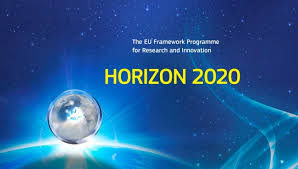DISTINCT

Descripción del Proyecto
ESR7 Título del proyecto y paquete(s) de trabajo con los que está relacionado: Aplicaciones psicosociales de la tecnología para el entrenamiento en salud y bienestar de adultos mayores con demencia y deterioro cognitivo leve y sus cuidadores en áreas rurales WP4: Tecnología para gestionar la propia vida Objetivos: desarrollar una prueba de concepto de una plataforma tecnológica que integre varias herramientas digitales innovadoras para el coaching de salud y bienestar de adultos mayores con demencia y deterioro cognitivo y sus cuidadores, y estudiar los efectos de la utilización de la plataforma en la salud física, mental y bienestar emocional, actividades de la vida diaria, funcionamiento social y cognitivo y uso de cuidados profesionales. Involucrar a los adultos mayores con demencia y sus cuidadores en el diseño y desarrollo de la plataforma, evaluando su satisfacción, el impacto del sistema en escenarios reales, aceptabilidad y usabilidad, que les permita manejar el sistema de forma autónoma en la vida diaria.
Resultados esperados: Una base de evidencia para la eficacia de una combinación de intervenciones psicosociales, tanto como una combinación de intervención sistemática para terapias con base de evidencia de alto nivel pero bajo cumplimiento en la vida real y datos de costo-efectividad, y como un ensayo controlado pragmático que compara estrategias que requieren evidencia de eficacia: 1.Utilidad y efectividad de las recomendaciones personalizadas y seguimiento para promover el bienestar físico, cognitivo, mental y social. 2. Validación de tecnología no obstructiva para el bienestar físico, cognitivo, social y mental. 3. Evidencia de diseño e innovación centrados en el usuario, nuevas formas intuitivas de interacción humano-computadora y aceptación del usuario. 4. Rentabilidad potencial debido a la mejora del autocuidado, el estilo de vida y la gestión de la atención. Adscripción(es) planificada(s): Dos por 3 meses cada una. El primero en el año uno con VUMC meses para determinar la viabilidad de aplicar esta plataforma a los Centros de reuniones de demencia y el segundo en el año 3 con MindTech (UoN) para evaluar la viabilidad de la plataforma y su aplicabilidad en el Reino Unido.
Financia


